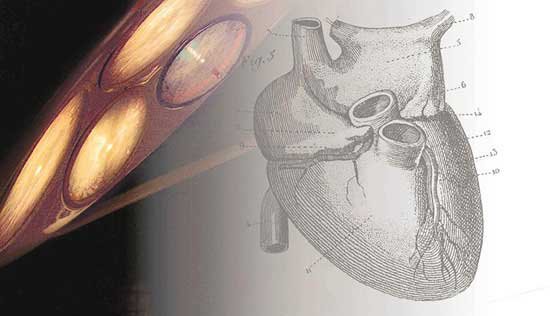4 area hospitals lauded for locating those who give a life-saving gift.
By Dorsey Griffith - dgriffith@sacbee.com
Last Updated 12:08 am PST Tuesday, November 13, 2007
Story appeared in METRO section, Page B4
Teri McIntyre, pictured with her husband, Allan, in 2005, made the decision to donate his organs after he was fatally injured in a golf cart accident in Camino.
Patients awaiting organ transplants and the doctors who perform them have long been vexed with how to close the gap between potential donors and the nationwide need for organs.
That is beginning to change, and four Sacramento-area hospitals are being recognized for their role in making it happen.
UC Davis Medical Center, Sutter Roseville Medical Center, Kaiser Permanente Sacramento Medical Center and Mercy San Juan Medical Center all have been recognized by the federal government for meeting federal goals for organ donation rates.
"The hospitals are absolutely instrumental in setting the circumstances so that the best possible outcomes for donation are there," explained Sean Davies, a family care coordinator with Golden State Donor Services, which links suitable donors in the Sacramento region with patients awaiting transplants. "The hospitals are successful because they really go out of their way to make sure the families of patients really have their needs met."
In the aftermath of the golf cart incident two years ago that left Teri McIntyre a widow and her 6-year-old son without a dad, solace came with the donation of her husband Allan's healthy heart and kidneys.
"That's my biggest strength; it's how I get through things" said McIntyre, of Cameron Park. "He lives on."
That process, of extracting hope and even joy from tragedy, is much more complicated than it might seem.
Nearly 100,000 people nationwide are waiting for an organ transplant, but only about half of the nation's potential donors – those who suffer brain death and are suitable organ donors – actually become donors, either because their families refuse or because of poor coordination between hospital staff and local organ procurement organizations.
The four Sacramento-area hospitals were among 392 facilities nationwide that have upped their rates to 75 percent or more of eligible donors. The rates are based on the percentage of potential donors who actually become donors. The only area hospital eligible for the award that didn't get it was Sutter Medical Center Sacramento, which just missed the goal, at 70 percent.
The hospital logging the greatest rate gain was UC Davis, where it jumped from 39 percent in 2005 to 79 percent last year.
Although federal regulations require hospitals to contact organ procurement organizations when they have a potential donor, sometimes the opportunities have been missed, said Tracy Bryan, Golden State's public relations manager.
The four hospitals were part of a national program called the Organ Donation Breakthrough Collaborative, which identified the best ways to integrate organ donation into hospital care, and offered training for nurses, doctors and others who care for dying patients.
At Kaiser Permanente, for example, referrals to Golden State are now made earlier than before, and intensive care nurses have the authority to fully support families facing the brain death of a loved one, and to help them understand their options, said Carolyn Ward, ICU charge nurse at Kaiser's Morse Avenue hospital.
Getting Golden State's family care coordinator involved early on has been key at Sutter Roseville, said trauma surgeon Andrew DeMar.
"We are very good at keeping the body chemistry and blood pressure in balance in anticipation for organ recovery, but the hard part is knowing how to approach the family," he said. "Obviously, people aren't at their best when they are grappling with the loss of a loved one."
Golden State's coordinators have extensive training in knowing how to discuss organ donation with families.
McIntyre said that Davies, of Golden State, appeared soon after her husband was taken by air ambulance from Apple Mountain Golf Resort in Camino to Sutter Roseville, where it quickly became clear that the 38-year-old would not survive his head injury.
Although her husband was not a registered organ donor, she said he had told her he wanted to be a donor, inspired by the story of a local woman who had received a donated heart.
"My head was spinning," she remembered of the meetings at the hospital. "(Golden State) had asked me how I felt. They were there for me the whole time. They never left our side. Never."

No comments:
Post a Comment